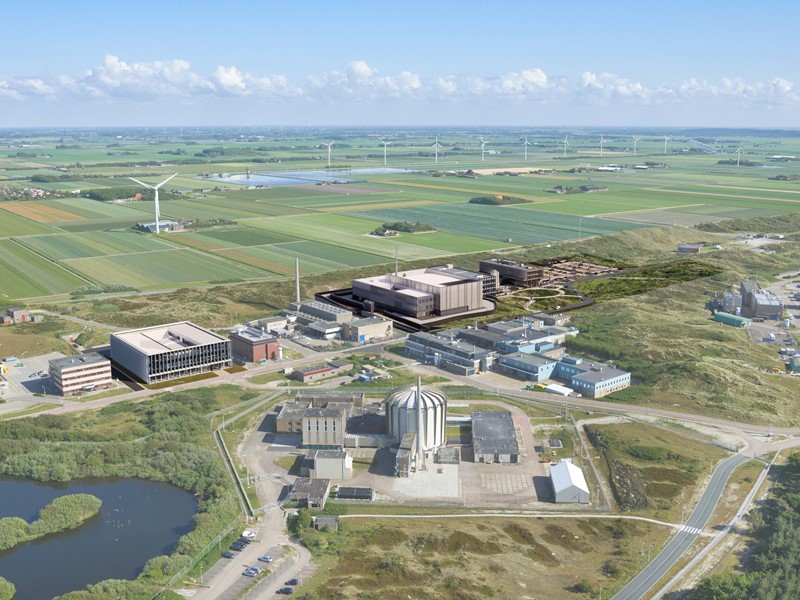NRG and PALLAS prepare themselves for increasing demand for radiopharmaceuticals
NRG and PALLAS prepare themselves for increasing demand for radiopharmaceuticals
09 October 2019
The demand for medical treatments is rising sharply, partly due to the increased incidence of cancer. In the past year, 115,000 new cases of cancer have been diagnosed in the Netherlands, 13,000 of which prostate cancer. Consequently, NRG|PALLAS is seeing an increase in the demand for medical isotopes for use in nuclear medicine therapy. The production of the most commonly used isotope for targeted cancer therapy, lutetium-177, has doubled over the past year. This year, some 25,000 patients worldwide have been treated with this isotope, which was being produced in the High Flux Reactor. Lutetium-177 is primarily used in the treatment of metastatic prostate cancer and neuroendocrine tumors.
The use of lutetium-177 in the treatment of metastatic prostate cancer is a new development in which both NRG|PALLAS and the Antoni van Leeuwenhoek (AVL) hospital have played an important role. Dr Wouter Vogel (AVL): “Antoni van Leeuwenhoek is the first hospital in the Netherlands to offer Lutetium PSMA therapy for which the treatment costs are reimbursed. Capacity is currently limited, meaning only a limited number of patients in the Netherlands can be treated, but the capacity will soon be expanded further. Furthermore, AVL is working to ensure that this treatment is also made available in other hospitals. To ensure that sufficient lutetium-177 remains available for all patients over the next few years, the entire production chain needs to be optimised. I’m so pleased that NRG|PALLAS is working on this.”
Bertholt Leeftink, CEO NRG|PALLAS: “Radiopharmaceuticals are vitally important. That’s why NRG|PALLAS, together with partners like AVL, are working on the development of new radiopharmaceuticals in our FIELD-LAB. With this development, we are reinforcing NRG|PALLAS’ leading position in the field of medical isotopes worldwide. We’ve now succeeded in developing a new, efficient and high quality production process for lutetium-177. In order to meet the increasing demand for this kind of radiopharmaceuticals in the future, we will embark on the construction of an isotope production facility (the Nuclear Health Center) next year, followed by the construction of the PALLAS-reactor to replace the High Flux Reactor in Petten. These new facilities will be entirely equipped for the development and production of radiopharmaceuticals.”
This year, the High Flux Reactor is celebrating its 60th anniversary. This reactor was commissioned in 1961 for the development of nuclear technology for energy provision. Since the 1980s, the reactor has increasingly been used for the production of medical isotopes, primarily for diagnostic applications. Nowadays, more than 30,000 patients each day are treated with medical isotopes from the High Flux Reactor. This number is rising, especially thanks to innovations in the field of nuclear medicine therapy for the treatment of various forms of cancer.
The number of patient doses of therapeutic radiopharmaceuticals worldwide is expected to rise from half a million per year to 2 to 4 million per year over the next 10 to 20 years. The growth is being generated by developments in new radiopharmaceuticals that provide effective treatment in an ever more targeted way, with minimal side effects. This means that the production chain is preparing itself for a rise in production, whereas the hospitals are preparing themselves by establishing special treatment rooms. Over the next 5 years, the number of treatments with lutetium-177 in the Netherlands is expected to increase tenfold.

More information?
Contact
For more information please contact

Cora Blankendaal
Press Officer

